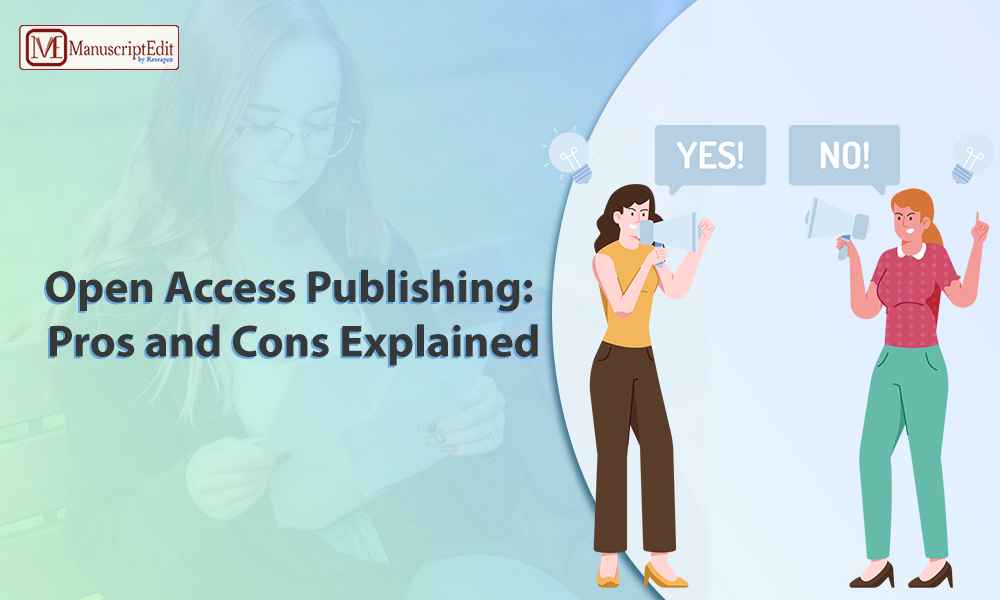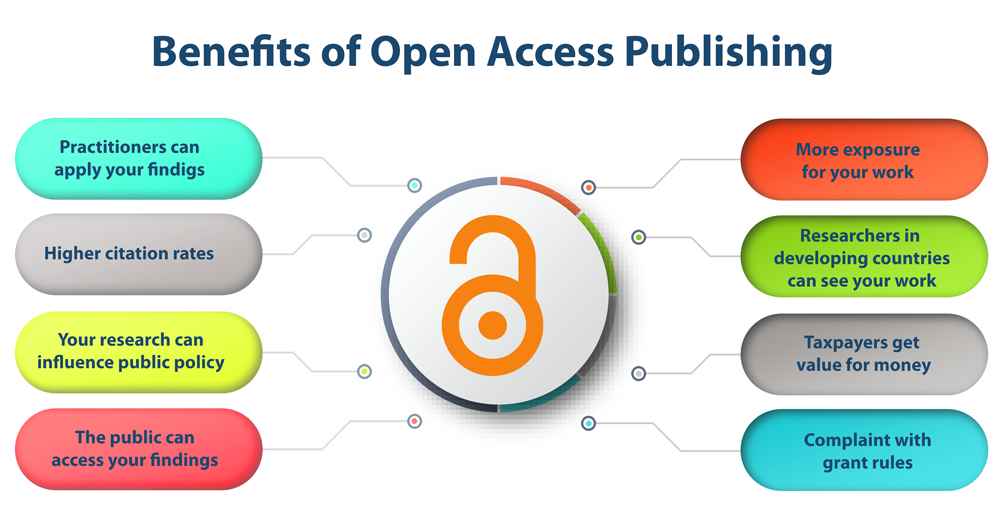
The term “open access publishing” describes a system that permits unrestricted access to scientific publications, removing all financial, legal, or technological restrictions to reading, downloading, copying, printing, or searching the material. This promotes global accessibility to research findings and democratizes the transmission of knowledge.

It questions established subscription-based publishing arrangements and strongly emphasizes the values of inclusivity, openness, and equity in academic communication. Open access has gained traction globally, leading to scholarly publishing policies and procedures changes. The journal PLOS ONE, or Public Library of Science ONE, is an open-access good example.
What are the Pros and Cons of Open-access Publication?
There are many benefits of open-access publishing; these include increased research accessibility and reach, faster information dissemination, and more engagement. It promotes improved scholarly networking and collaboration, which increases author reputation and citations.
Still, there are issues, such as complaints about sustainability, quality, and business strategies. Problems like inadequate peer review and predatory publishing question credibility. Authors could have additional costs and copyright issues.
Despite these disadvantages, Open Access Publishing’s overall benefits—such as democratizing information and encouraging innovation—underline its significance in the academic scene, even though it will always need to be improved to overcome its flaws.https://www.pubmanu.com/open-access-publishing-boon-bane/

What are the Criticisms of Open-access Publishing?
As article processing charges (APCs) make open-access publication financially untenable for authors, others claim it may exclude academics from less affluent institutions. Quality control is another concern because specific open-access journals may have slack peer-review procedures, which could result in the publication of poor-quality research.
Is it Reasonable to Publish Open Access?
Open Access Publishing democratizes knowledge and increases research accessibility, which yields substantial benefits. But its effectiveness depends on weighing the benefits and drawbacks. Concerns concerning quality and sustainability must be balanced with other considerations for authors and researchers, such as enhanced visibility.
Even while Open Access encourages cooperation and increases citation rates, it is still necessary to critically assess the reliability of published work. Addressing problems like predatory behavior and upholding strict peer review procedures is critical.
What are Some Adverse Effects of Open-access Journals and Databases?
Lower quality control is one of the drawbacks of open-access journals and databases, as some may need strict peer review, which could result in the publication of inaccurate or dubious material. Furthermore, predatory journals with little visibility or influence may exploit authors who pay hefty publication costs.
Duplication is another issue that can arise from publishing the same study on different platforms more than once, which can be confusing and wasteful of resources. Open access can also worsen information overload, making it difficult for researchers to sort through voluminous literature in search of reliable sources. This could impede the advancement of science and the sharing of knowledge.
Conclusion
While there are advantages to online publication, such as enhanced accessibility and collaborations, there are also quality and sustainability concerns. Open-access publications must be transparent and subject to critical review to improve knowledge diffusion and advance scholarly research.
References
● https://www.openaccess.nl/en/what-is-open-access/pros-and-cons
● https://www.phdstudies.com/articles/the-pros-and-cons-of-open-access-publishing
● https://www.wur.nl/nl/library/researchers/open-access/open-access-pros-and-cons.htm
● https://www.edanz.com/blog/open-access-advantages-disadvantages
